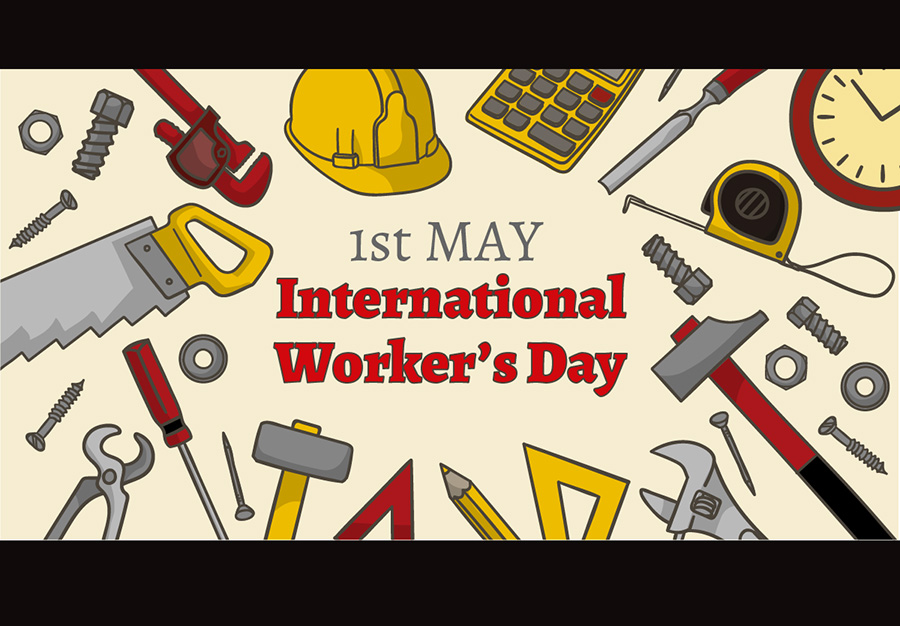
Published :
Updated :

May Day or the International Workers' Day stands for the workers' victory over exploitation and injustice. It began as a day to express solidarity with workers in 1889 by the International Federation of Socialist Groups and trade unions. It is the commemoration of the violent Hay Market workers' uprising in 1886 in Chicago, USA. On May 4, the police attack on industrial workers demanding 8-hour working day led to violent demonstrations and clashes in which 10 workers were killed in police firing.
The May Day has by now lost much of its appeal because of a relentless march of free market economy and unrestrained consumerism. Though celebrated as a day of achievements in the labour rights sector of this country, it is also one of overview of the failures and disillusionments that came by in the course of various movements. However, the nature of labour movements has gone through changes over time. In its long course, the bellicosity has largely been dropped to make way for dialogue and deliberations. The earlier intransigence has been replaced by careful negotiations between the unions and employers. The days of jute and cotton mills have long been over. The country's industrial sector is presently dominated by the readymade garments (RMG) and the allied industries. After decades of agitations over and demand for the minimum wages by the RMG workers, a semblance of calm prevails in the sector now. However, sporadic eruptions of grievances and protest demonstrations still continue over a number of unresolved issues.
Clearly, in the context of market volatility, the minimum wages should be raised. Since the workplace environment is yet to be conducive to workers' welfare, more needs to be done to improve the standard of factories. The survivors of the Rana Plaza tragedy with or without grievous injuries have yet to get back their jobs or avail other sources of income. The devastated relatives of the dead still desperately await compensations. The trade unions and the labour rights activists had put in the best of their efforts in seeking justice for the survivors. But those proved futile.
Creating the right environment for the workers to have their basic demands met comprises the core of the May Day message. In the developed parts of the world, strongly united workers' movements hardly fail to compel the authorities to bow down to the legitimate demands. In most of the developing countries, it is the authorities' inflexible stance not to yield to the workers' demands that gets the better of workers' rights. Workers are exploited in more ways than one. The factory owners fail to understand that aggrieved workers are unlikely to put in their best. Thus productivity fails to reach the desired level. Bangladesh is no exception. Then there are many other workers' groups in the informal sector, which are not even considered a working class to deserve their rights and privileges. They are not covered by trade unions. The labour law should cover such workers in order to dispense justice for such socially vulnerable working groups.


 For all latest news, follow The Financial Express Google News channel.
For all latest news, follow The Financial Express Google News channel.